Last week, a friend who plays with Bitcoin complained to me: 'I've had my BTC in my wallet for three years, and apart from the ups and downs, I've never seen a trace of interest. They say it's digital gold, but gold can be rented out for some income!' As a result, yesterday, he sent me a message: 'Quick, check out this Solv BTC+, they say I can earn 5%-6% annualized returns just lying down, and I don’t even have to cross a chain bridge!'
Launched on August 1, BTC+ has indeed turned his 'Bitcoin working dream' into reality. As Solv's flagship product, it not only brings 5%-6% basic annualized returns to Bitcoin holders but also opens a door for traditional funds outside the crypto sphere—after all, when over $1 trillion worth of Bitcoin lies like a 'sleeping gold mountain' in wallets, who doesn’t want it to generate some heat?
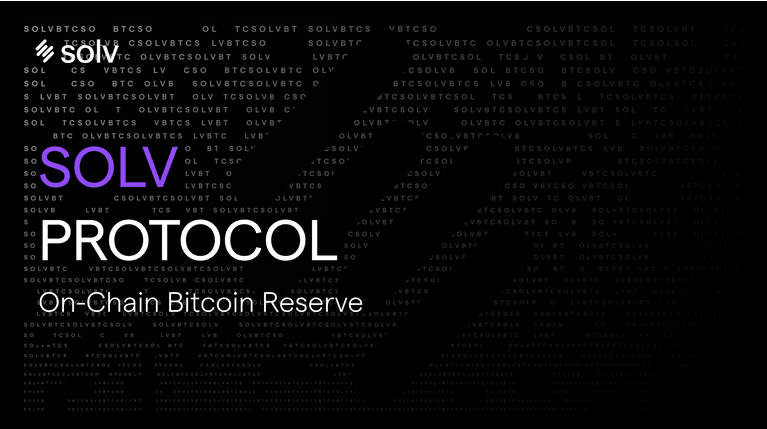
First, has the turning point for Bitcoin's financialization arrived, from 'earning interest on coins' to 'institutional-level wealth management'?
I remember when DeFi was hot a couple of years ago, everyone was shouting about 'liquidity mining' and 'yield aggregation', but what happened later? High thresholds, opacity, and endless competition left only a mess. On the contrary, Bitcoin spot ETFs just gained traction last year and managed over $100 billion in assets within a year—what does this indicate? Traditional funds aren’t after flashy 'speculative trading', but rather stable and visible returns.
Solv has emerged just at this critical juncture. It is the 'BTC yield manager' designated by Binance's Earn platform; you must know how many rounds of due diligence it takes to allow a trading platform of Binance's caliber to entrust user assets for yield. Compliance, custody security, and strategy stability—all must be top-tier. Not to mention the BNB Chain Foundation directly shelled out $25,000 to buy SOLV as a 'greeting gift' for a $100 million incentive program; there’s also the Islamic financial certification agency Amanie Advisors specifically providing it with Shariah compliance certification—this is no ordinary crypto project. It aims to connect the entire chain from 'crypto sphere to traditional finance to Middle Eastern sovereign funds'.
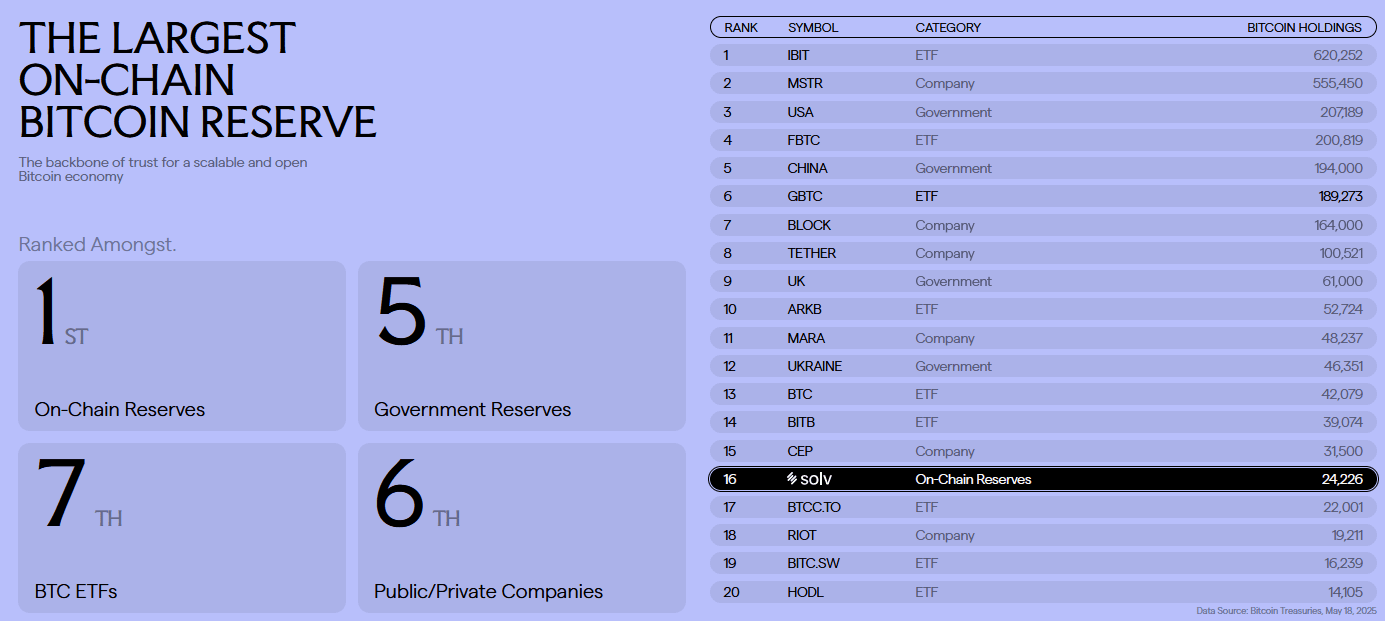
Second, is depositing BTC like depositing in Alipay? How appealing is BTC+'s 'lazy investment'?
Having mentioned all this background, some might wonder: 'Isn't this just like previous staking, requiring a lot of hassle?' In fact, it’s not that complicated. Open Solv's official dApp (link at the end), find the BTC+ entry, and with a few clicks, you can deposit your native BTC from your wallet—no cross-chain bridges, no need to convert to WBTC, you won't even hear the word 'wrapped'.
Depositing it is more worry-free: the system will automatically generate a 'BTC+ receipt', equivalent to your 'electronic certificate' in the vault, and the earnings grow daily; the longer the lock-up period, the more you can share in the $100,000 SOLV reward pool—such as the difference in earnings between locking for 3 months and locking for a year can be substantial, so if you plan to hold for the long term, it's recommended to choose the longest lock-up period for better cost-effectiveness.
What I find most reliable is its 'dual vault' design. Simply put, it's about separating 'managing money' and 'doing work': the custodian is responsible for safeguarding your BTC, while the execution team handles strategies (on-chain credit, liquidity market making, arbitrage, etc.), and it has integrated Chainlink's proof of reserves, allowing you to track every asset's movement on-chain. It’s like depositing money in a bank, where you can see both your account balance and the bank's fund flow report—this transparency is crucial for us ordinary users.
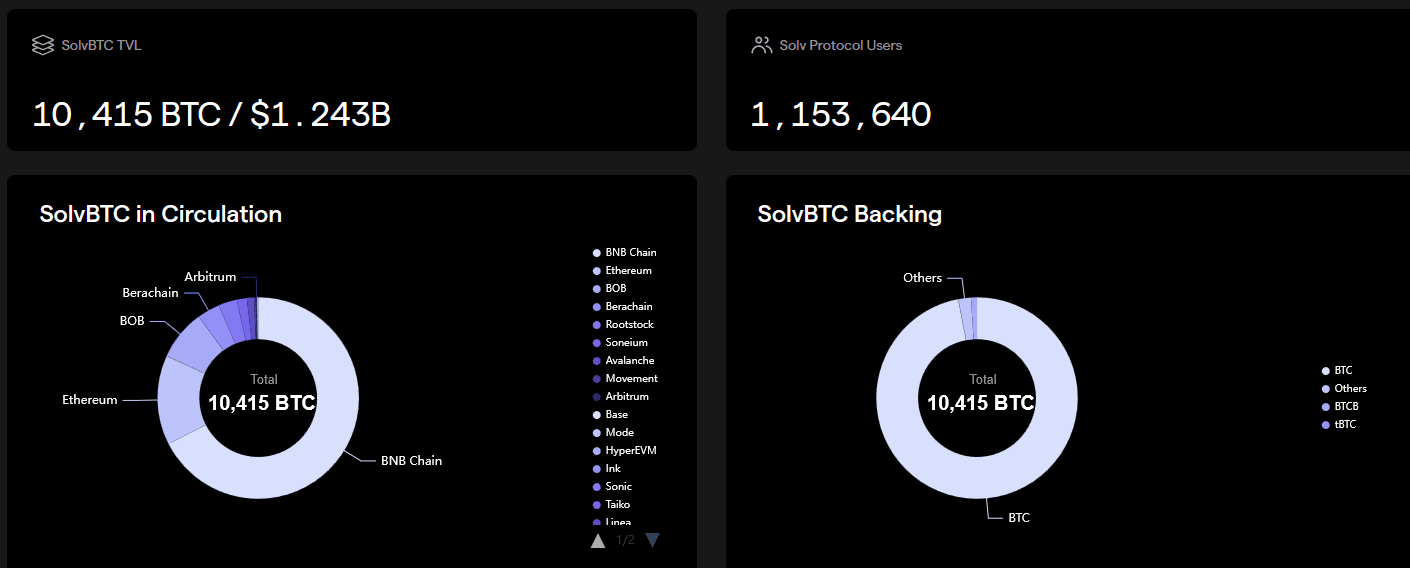
Third, why choose BTC+ for the $1 trillion 'sleeping funds'?
A friend asked me before: 'There are many places to earn interest on coins now, why choose BTC+?' After thinking, it's probably because it solves three 'pain points':
First, the sources of returns are more diverse. It doesn’t solely rely on 'staking' for interest, but combines on-chain credit, liquidity market making, basis arbitrage, and real-world yields from BlackRock's BUIDL bond fund and Hamilton Lane's SCOPE fund, all blended into one vault. To put it simply, it’s like running a small shop that used to only rely on selling goods, but now also has advertising partnerships and agency operations, leading to a more stable income.
Second, traditional funds can also participate. The Middle East has over $5 trillion in Islamic financial capital, and global pension and insurance funds have over $10 trillion seeking stable returns—previously, if they wanted to touch Bitcoin? Either they feared non-compliance or didn’t understand. But BTC+ has Shariah certification, is backed by real-world assets, and has endorsement from a big platform like Binance, essentially handing these 'big funds' a 'compliance key'.
Third, it connects the crypto world to traditional finance seamlessly. In the past, earning BTC through DeFi required learning how to use wallets and adjust parameters, which wasn't very friendly for beginners; using centralized platforms made users worry about their assets being misappropriated by custodians. But BTC+ is different: Binance users can directly subscribe on the Earn page, as simple as buying a financial product; DeFi players can see transparent data on-chain; traditional institutions can connect to RWA (real-world assets) revenue streams—truly achieving 'one product, covering everyone'.
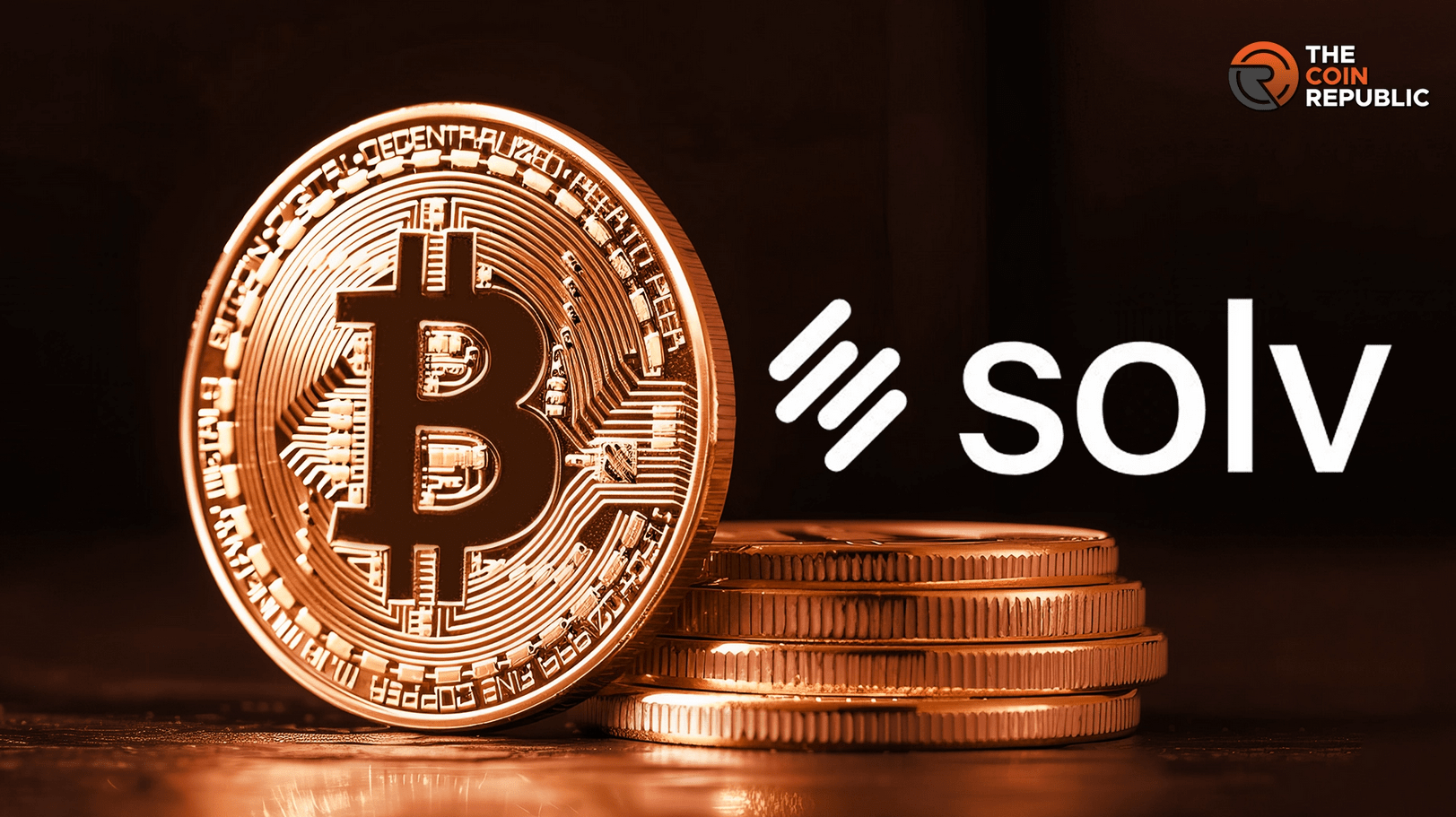
Conclusion: My Bitcoin is finally not a 'sleeping beauty'.
While writing this article, I specifically tried depositing into BTC+—the moment the wallet popped up the confirmation box, I suddenly felt a bit dazed: when I first bought BTC, it was still a 'code toy'; now, it can actually 'receive salary' like an office worker.
Solv's ambition is clearly more than that. They claim they want to 'capture 1% of the global Bitcoin supply', which is over $1 trillion in funds. Does this sound like a fantasy? But look at the rapid growth of Bitcoin spot ETFs, observe the eagerness of Middle Eastern capital, and then consider the big names behind Solv like Binance, BlackRock, and Hamilton Lane—perhaps it really is possible.
So, if you have idle BTC in your wallet, why not try the BTC+ page on Solv? After all, it's never too late to make money 'make money'—especially when your money can finally transform from a 'sleeping beauty' into a 'career expert'.
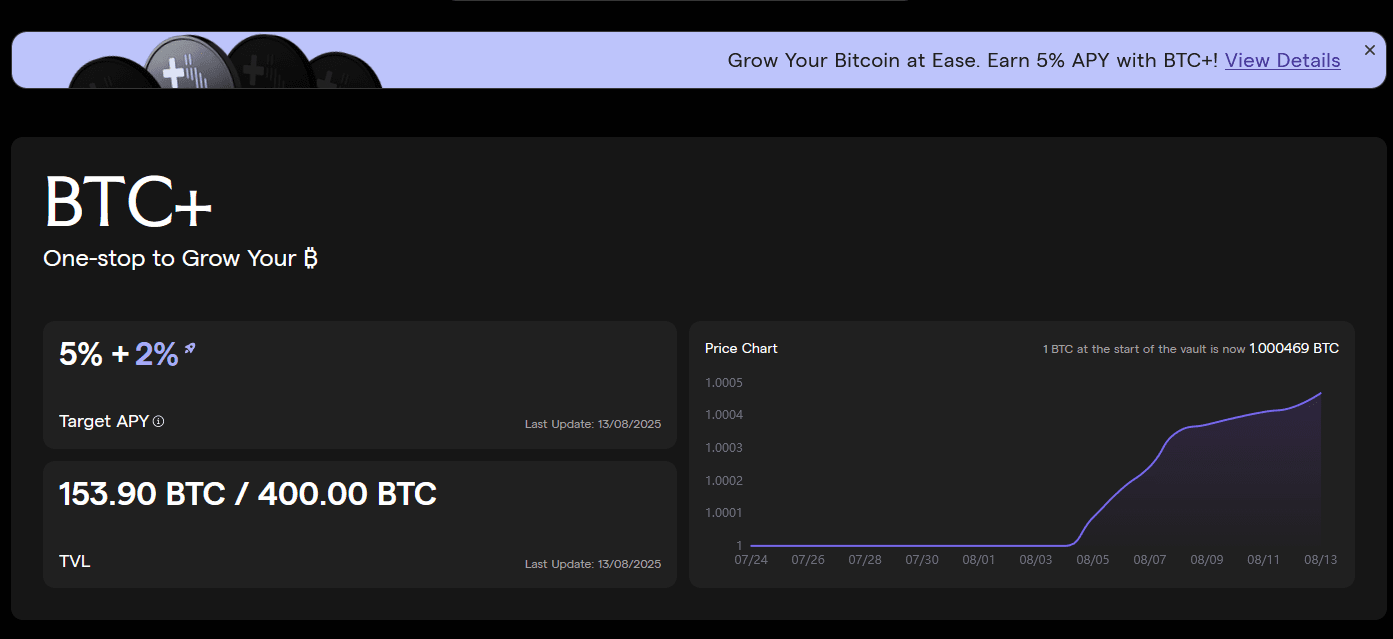
👉 Experience it now: https://app.solv.finance/btc+?network=ethereum



